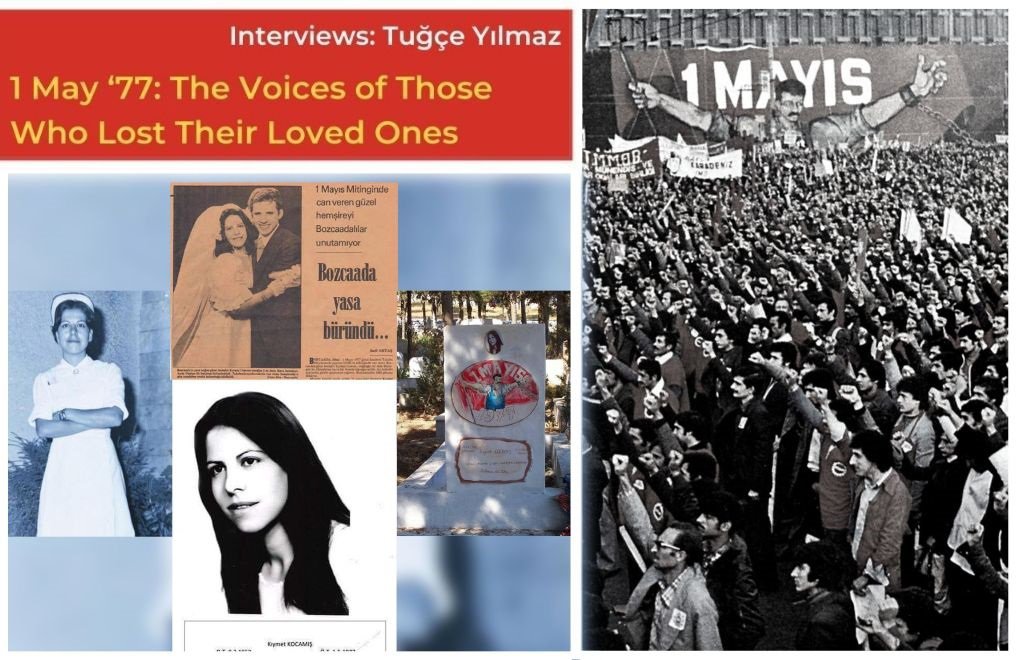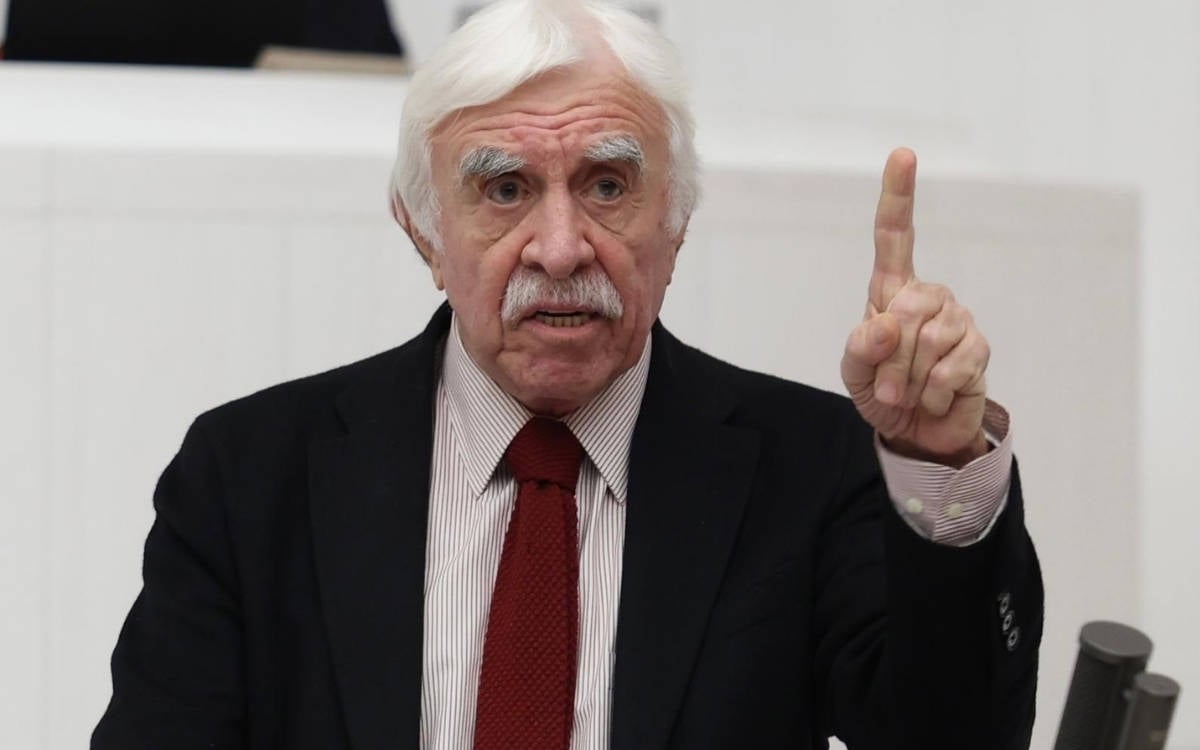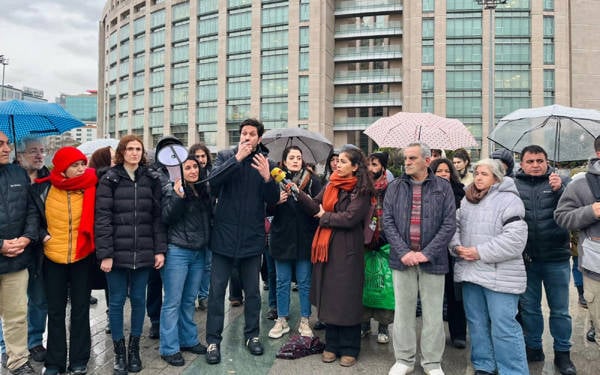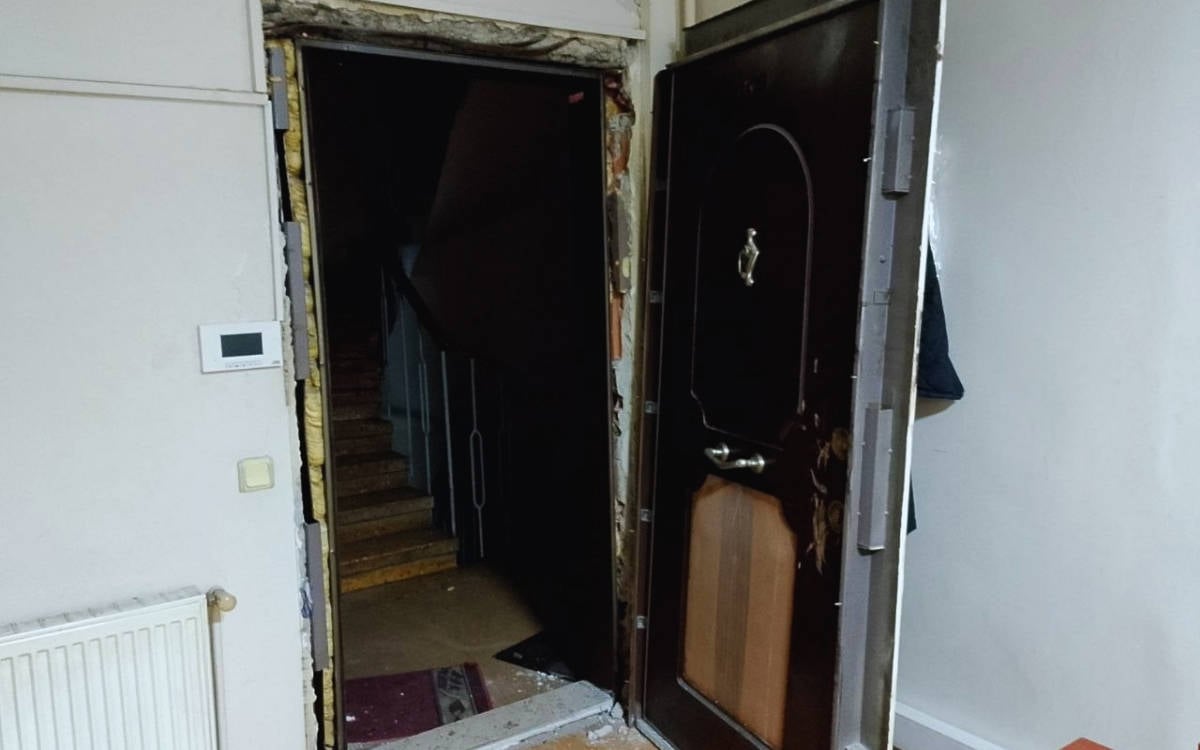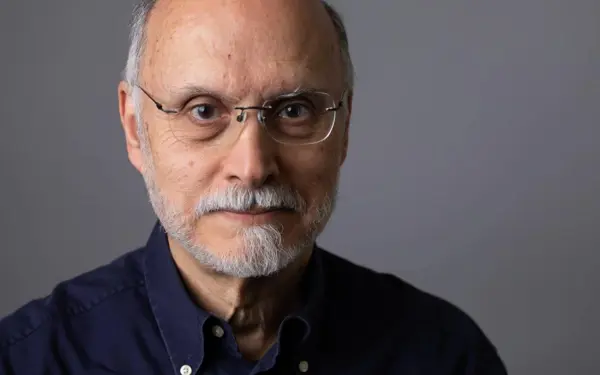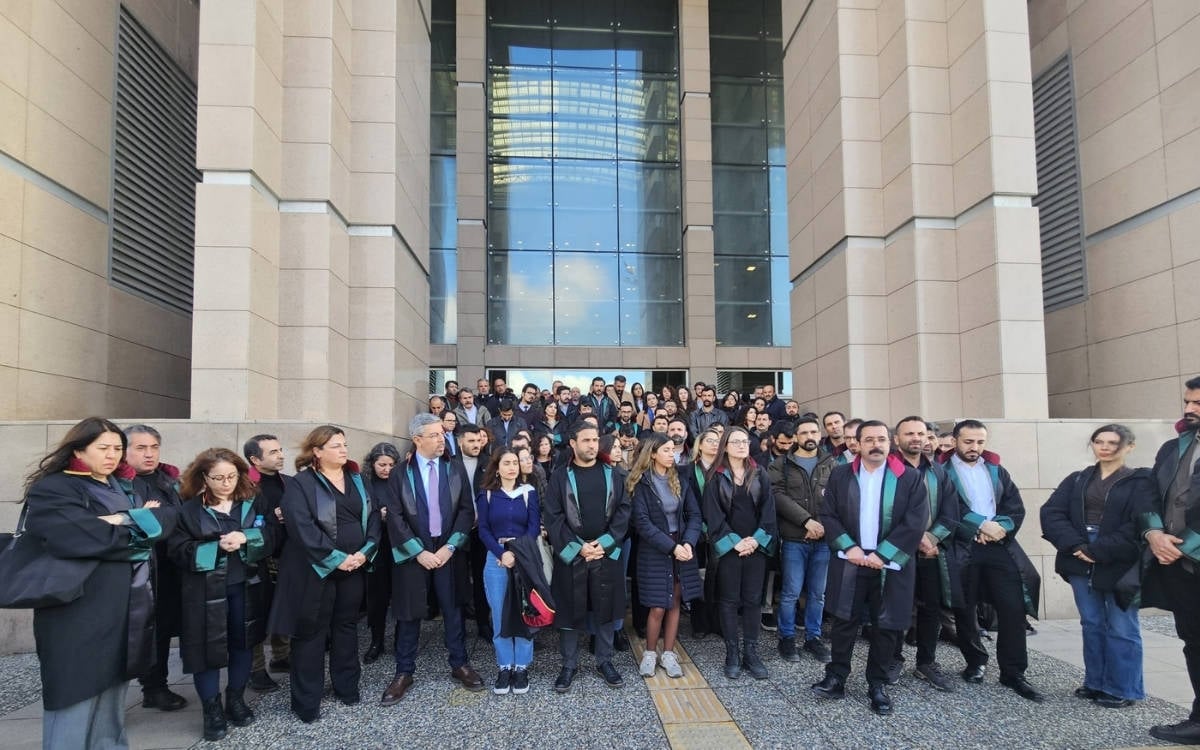Click to read the article in Turkish
Medical nurse Kıymet Kocamış was born in 1952, and worked at the Üsküdar Zeynep Kâmil Hospital.
In 1976 she married a military officer. When she lost her life on 1 May 1977, Nurse Kıymet was four months pregnant.
According to the autopsy report, the cause of Kıymet Kocamış's death was mechanical asphyxia due to compression of the abdomen and chest. Thereport also said that the external cuts and bruising on her body may have been caused by falling or having been pushed to the ground.
Kadriye or Kıymet?
It was a challenge to track down information on Kıymet Kocamış. Her name appeared on the lists, including that of the Confederation of Progressive Trade Unions of Turkey (DİSK), as Kadriye Duman. The name Kıymet Kocamış appeared in parentheses; this was the name she was known by on the island of Bozcaada, where she grew up. No one knew her as Kadriye. The local newspapers in Bozcaada gave the name Kıymet Kocamış in all their reports.
Upon continuing my research based on the latter name, I came across an interesting article entitled, "Was Kıymet a communist? Was she an anarchist? Was Kıymet protesting at Taksim Square?"[1] It seemed that in the small settlement of Bozcaada, Kıymet Kocamış's death on 1 May 1977 had been discussed at length: What happened? How did it happen? Why did she die? Was she a unionist?
Funeral Arrangements
Although it wasn't easy, the Kocamış family was able to claim their daughter's body and take it to Bozcaada, where they laid her to rest in a quiet ceremony. In a discussion among the people of Bozcaada, it was revealed that a nurse from the island had died on 1 May 1977. For this part of the story, I am indebted to Nejat Işık, Türkan Işık and Azize Karabıyık. I would also like to express my gratitude for their support in helping me find Kıymet Kocamış's older sister, Nimet Biçer, and Nimet's children.
Arranging Kıymet Kocamış's grave was what they did next. It was a collaborative effort. The painter Cemil Onay designed the gravestone, which was then made by ceramic artist Nur Sütçü, while a construction company provided the necessary materials.
Commemoration
From that day on, the islanders march to her grave every year on the First of May. The cortege was initially made up of 10-15 people, but in 2013 this number reached 100, when workers from the Çanakkale branch of DİSK joined. Mayor of Bozcaada, Akan Can Yılmaz, renamed the street where her family resided "Kıymet Kocamış Street."
Although health issues meant I was unable to speak with Kıymet's sister Nimet Biçer, I did get to listen to her niece, Nurcan Kunt, who had heard her mother's stories about her aunt, and also had her own memories of her from childhood. Nurcan Kunt was 6 years old when her aunt, Kıymet Kocamış, died.
Nurcan Kunt, niece:
On the list of those who died on 1 May 1977, my aunt's name appears as Kadriye Duman, but everyone in Bozcaada knew her as Kıymet. Kıymet Kocamış. Duman is the surname she took after getting married.
It's difficult for me to speak about Aunt Kıymet. It's difficult for all of us. Her loss was devastating to our family. Because my aunt had a very happy life. She'd got an education and become a professional, a nurse, like she'd always wanted, though she really had to struggle to achieve this, of course. It was my aunt's fate to lose her life that day.
The only one to go to school
I remember her as being cheerful, soft-spoken, considerate, talkative, and full of jokes. My mum always talks about how she avoided sorrow and grief, how she was always smiling and trying to put a smile on other people's faces as well. She joked around with them all the time, and gave everyone nicknames.
They were three sisters, but my aunt was the only one to go to school. My grandfather was a farmer; he only had enough for her, she was the only one he could afford to send to school. Well, that, and of course the conditions were different back then too. My grandfather was of the mind that girls didn't need to go to school, that it was pointless really. That's why my mum didn't go to school. She wanted to be a teacher, but she wasn't able to. My aunt, though, went out of her way to go to school. My mum always says my aunt got her way. But she really had to put up a fight to get it.
She was brave
I think courage played a huge part in my aunt's success, I mean, in her being able to leave behind this small town and go to Istanbul as a nurse. They say she wasn't afraid, that she didn't really fear anything. She just put her mind to it, said she'd make it somehow, and went to school and left the island behind.
My aunt went to the Çanakkale Vocational School of Health. When she graduated, she took up her first post in Istanbul, but unfortunately, she wasn't able to work for long. Just five or six years. And then there was her long engagement, followed by marriage, which she didn't get to enjoy for long either. She was pregnant when she died, she was expecting a baby.
She was with her husband that day, but we never saw him again after she died.
Her husband never showed
This was one of the things that upset my grandparents the most. Her husband never showed up after my aunt's death. After all, she was carrying his child and it had been a marriage of love. We'd gone to Istanbul, the whole family, for their wedding ceremony. My parents didn't want to take us but I cried so much they changed their mind. Because I really loved my aunt. And even though my aunt was incredibly busy with all the shopping and preparations, she still made the time to take me by the hand and show me around. They had a nice house, at the top of a hill.
She was extremely caring, a good person. My grandparents did farming and had a vineyard on Bozcaada, and my mum and aunt were expected to help them out. My aunt was always finding excuses to get out of work though, my mum laughs every time she talks about it. You know how younger children always receive the most affection, well, she used that to her advantage. She would run off to be with her friends, and my mum would do her work too so that she wouldn't get in trouble. My mum and my aunt always got on so well anyway, I don't recall them ever quarrelling. "I had to put up with all her fooling around, her loafing about, she'd get away with it while I'd take the blame and get told off, but I loved her more than my own life," my mum always says.
She would spend her salary on us
She was a thoughtful person. She maintained her bond with my mum and my other aunt. She went to Istanbul but she always wrote to them. She always thought of her family, she had secured her own livelihood but she worried about her family and believed she should help them out too. She didn't earn much but she tried to help everyone out. There's one thing I remember really well: Whenever she visited, she always brought each of us a present. She never came without gifts. One time she bought me a coat. I have a photograph of me with that coat on. After she started working, she spent most of her salary on my grandparents. Whenever the three of them went out together, she'd be sure to buy both of them new clothes. She was always trying to do things that would make us happy.
1 May 1977
Her being there on 1 May was a coincidence. She was out on a Sunday. They had a friend from Bozcaada who lived somewhere near Kazancı Slope, and she and her husband were visiting that friend. They'd known each other since they were kids, and they'd found each other again in Istanbul and went on seeing each other. So, the friend was from Bozcaada too, you see; she'd married and moved to Istanbul.
They saw their friend that day, chatted, drank tea. On the way back they saw the crowd. But they didn't think anything of it and carried on walking. A short while after they entered the crowd, panic erupted. In fact, another friend of my aunt from Bozcaada saw her there that day and told her, "Kıymet, you should get out of here, things aren't looking good." They turned down a side street, but couldn't get out. Then they went down another street, but it was no use. They wanted to leave but couldn't. They got stuck in the crowd. When people started fleeing my aunt fell down. Her husband was hit on the head and was injured too, so he couldn't help her up.
It was sheer coincidence
It was only by sheer coincidence that my aunt was there that day. We celebrate the First of May altogether as a family, we respect it. It is, after all, Labour Day. But that wasn't my aunt's motivation that day. She wasn't a unionist or a member of any organisation. That's why no one but her family can tell you about my aunt. And the people of Bozcaada, people who know us.
She was just getting started
It was utter chaos when her body arrived in the village. It's a small place after all, people said all sorts of things. But everyone was deeply sad.
My grandmother's life was never the same after my aunt died. Unfortunately, she just couldn't pull herself together. She was beset by illness. People on the island talked about my aunt, wondering if she was a unionist, what she was doing there that day, and this upset my grandmother even more. Her friends told the family that she wasn't there on purpose, that they had made plans to get together that Sunday. Now, on the island, my aunt is commemorated every year on the First of May. They hold a march to her grave.
My mother still grieves whenever she visits my aunt's grave. It's rather traumatic for her, that her little sister passed away before she did.
Before 1 May 1977, my aunt and the whole family had a very happy life. I wish it had never happened. Her life was left half finished. She was only just getting started, she'd only just left the island... (TY/APA/VK)
About Tuğçe YılmazJournalist, editor, researcher. "1 May 1977 The Voices of Those Who Lost Their Loved Ones / 1 May 1977 and Impunity" she was engaged in this dossier as a researcher, reporter, editor and writer. Her articles, interviews and reports are published in outlets such as bianet, BirGün Book, K24, 5Harfliler, Gazete Karınca and 1+1 Forum. She graduated from Ege University, Faculty of Literature Department of Philosophy. She was born in Ankara in 1991. |
 |
| This text was created and maintained with the financial support of the European Union provided under Etkiniz EU Programme. Its contents are the sole responsibility of "IPS Communication Foundation" and do not necessarily reflect the views of the European Union. |
CLICK - 1 May 1977 e-book is online
The ones who lost their lives on 1 May '77The ones whose loved ones we could talk to: Ahmet Gözükara (34, teacher), Ali Sidal (18, worker), Bayram Çıtak (37, teacher), Bayram Eyi (50, construction worker), Diran Nigiz (34, worker), Ercüment Gürkut (27, university student), Hacer İpek Saman (24, university student), Hamdi Toka (35, Seyyar Satıcı), Hasan Yıldırım (31, Uzel worker), Hikmet Özkürkçü (39, teacher), Hüseyin Kırkın (26, worker), Jale Yeşilnil (17, high school student), Kadir Balcı (35, salesperson), Kıymet Kocamış (Kadriye Duman, 25, hemşire), Kahraman Alsancak (29, Uzel worker), Kenan Çatak (30, teacher), Mahmut Atilla Özbelen (26, worker-university student), Mustafa Elmas (33, teacher), Mehmet Ali Genç (60, guard), Mürtezim Oltulu (42, worker), Nazan Ünaldı (19, university student), Nazmi Arı (26, police officer), Niyazi Darı (24, worker-university student), Ömer Narman (31, teacher), Rasim Elmas (41, cinema laborer), Sibel Açıkalın (18, university student), Ziya Baki (29, Uzel worker), The ones whose loved ones we did/could not talk to: Aleksandros Konteas (57, worker), Bayram Sürücü (worker), Garabet Akyan (54, worker), Hatice Altun (21), Leyla Altıparmak (19, hemşire), Meral Cebren Özkol (43, nurse), Mustafa Ertan (student), Ramazan Sarı (11, primary school student) The ones only the names of whom are known: Ali Yeşilgül, Mehmet Ali Kol, Özcan Gürkan, Tevfik Beysoy, Yücel Elbistanlı The one whose name is unknown: A 35-year-old man |
The voices of those who lost their loved ones: 1 May '77 and impunity
Political panorama of Turkey-1977
Film industry worker Rasim Elmas, 41, died in Taksim
Construction Worker Bayram Eyi, 50, died in Taksim
Teacher Bayram Çıtak, 37, died in Taksim
High School Student Jale Yeşilnil, 17, died in Taksim
Teacher Kenan Çatak, 31, died in Taksim
Teacher Ahmet Gözükara, 33, died in Taksim
Teacher Hikmet Özkürkçü, 39, died in Taksim
Student-laborer Niyazi Darı, 24, died in Taksim
University student Nazan Ünaldı, 19, died in Taksim
Teacher Ömer Narman, 31, died in Taksim
Laborer Ali Sidal, 18, died in Taksim
Counterperson Kadir Balcı, 35, died in Taksim
Student Hacer İpek Saman, 24, died in Taksim
Factory Worker Kahraman Alsancak, 29, died in Taksim
Laborer Hüseyin Kırkın, 23, died in Taksim
Student Ercüment Gürkut, 26, died in Taksim
Public order police officer Nazmi Arı, 26, died in Taksim
Laborer Mahmut Atilla Özbelen, 26, died in Taksim
Factory worker Hasan Yıldırım, 31, died in Taksim
Itinerant salesperson Hamdi Toka, 35, died in Taksim
Security Guard Mehmet Ali Genç, 60, died in Taksim
Factory Worker Ziya Baki, 30, Died in Taksim
Laborer Mürtezim Oltulu, 42, Died in Taksim
Teacher Mustafa Elmas, 33, Died in Taksim
Student Sibel Açıkalın, 18, died in Taksim
Laborer Diran Nigiz, 34, died in Taksim
1 May 1977 & Impunity
'The state is implicated in this crime, perpetrators must be put on trial'
'If you can't find the killers, you can't remove the stain'
'The perpetrators of the 1 May 1977 massacre got away with it'
Remembrance as a matter of dignity and the fight against impunity
Who is hiding the truth and why?





